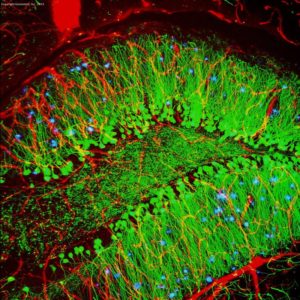Tag
Alzheimer’s
-
Adieu, Aduhelm: Biogen pulls plug on controversial Alzheimer’s drug
The discontinuation of Biogen’s Aduhelm is a cautionary tale of overpromising, under-delivering, and an inside look at FDA sausage-making.

-
Brain care score may help pinpoint risk of dementia, stroke
Following a list of 12 steps to modify physical, lifestyle and social components of health could help older people improve…

-
Q&A: What to know about new Alzheimer’s drug Leqembi
The FDA granted full clinical approval to Leqembi (lecanemab) on Thursday, July 6, making it only the second new drug…

-
Medicare announces coverage of costly Alzheimer’s medication. That could mean high premiums for beneficiaries
Medicare coverage of new Alzheimer’s treatments will raise premiums and increase out-of-pocket costs for beneficiaries, new analysis finds.

-
Global burden of Alzheimer’s projected to triple
Cases of Alzheimer’s disease are rising throughout the world and could triple by 2050, according to a recent analysis in The…

-
Disease-awareness campaigns merit extra scrutiny, experts say
This is part 2 of a package on sponsored disease awareness campaigns and other controversial drug marketing practices, focusing on…

-
Explaining Biogen’s controversial ‘MCI’ advertising to your audience
New marketing campaigns about forgetfulness and distraction could lead people to seek the costly Aduhelm drug for Alzheimer’s disease even…

-
Another Alzheimer’s treatment takes a different route than the rest
Editor’s Note: This is part 2 of a two-part package on the pipeline for Alzheimer’s disease drugs. Check out part…

-
Aside from Eli Lilly’s drug, what else is in the Alzheimer’s pipeline?
Eli Lilly recently announced that the FDA had granted a breakthrough therapy designation for donanemab, its investigational antibody therapy for…

-
New Alzheimer’s drug draws attention from federal, independent groups
Liz Seegert, AHCJ’s topic leader on aging, contributed to this article. Federal policy experts and the influential Institute for Clinical…










